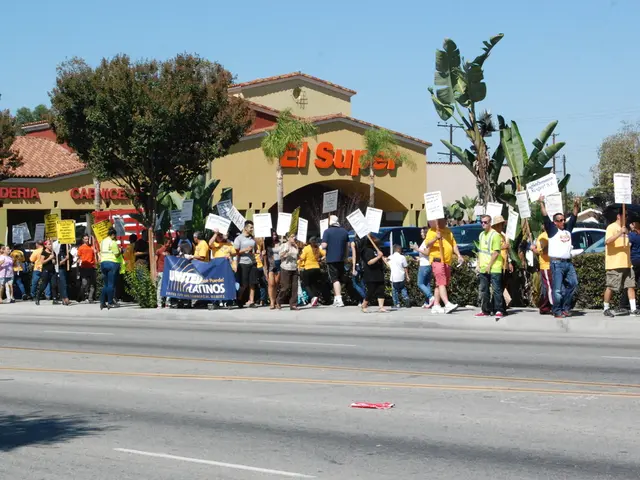Forced Removal of Mahmoud Khalil from the Country
Mahmoud Khalil, a Palestinian Arab born in Syria and also a citizen of Algeria, has been ordered for deportation by a U.S. immigration judge. The case of Khalil, who secured a green card by hiding key facts, including ties to UNRWA, the UN agency long accused of enabling Hamas in Gaza, has raised concerns about immigration and foreign influence operations.
The Khalil case emphasizes the need for democracies to be vigilant against networks with sinister agendas that use anti-Israel activism as a cover. Khalil was associated by U.S. authorities with alleged concealment of relevant information during his Green Card application. An immigration judge concluded that Khalil's omissions were deliberate efforts to deceive, leading to his deportation order to Algeria or Syria if necessary.
The FBI has repeatedly warned about foreign influence operations and the use of American campuses as staging grounds for propaganda and recruitment. The Khalil case raises concerns about this very issue, as a man with ties to organizations linked to terror hotbeds gained legal residency in the U.S. while leading aggressive anti-Israel actions on campus.
Questions linger about Khalil's foreign employment and potential associations that could pose a threat to national security. The possibility that Khalil's concealments were designed to obscure dangerous associations cannot be dismissed.
The deportation order for Khalil may not be immediately enforced due to appeals, civil liberties support, and a federal injunction. Failure to carry out the deportation order sends a message that America lacks the resolve to defend itself against those who exploit its freedoms.
The Khalil case serves as a lesson for democracies, illustrating the potential consequences of failing to enforce laws against those who seek to undermine allies. A nation that fails to act against those who exploit its openness invites further abuse.
Democracies must be clear-eyed about movements that call for Israel's destruction, as they are part of a wider campaign to undermine security from within. The Khalil case highlights the potential danger of hesitation in enforcing laws against individuals who deceive their way into permanent residency. It underscores the importance of maintaining vigilance and upholding the rule of law in the face of potential threats to national security.







